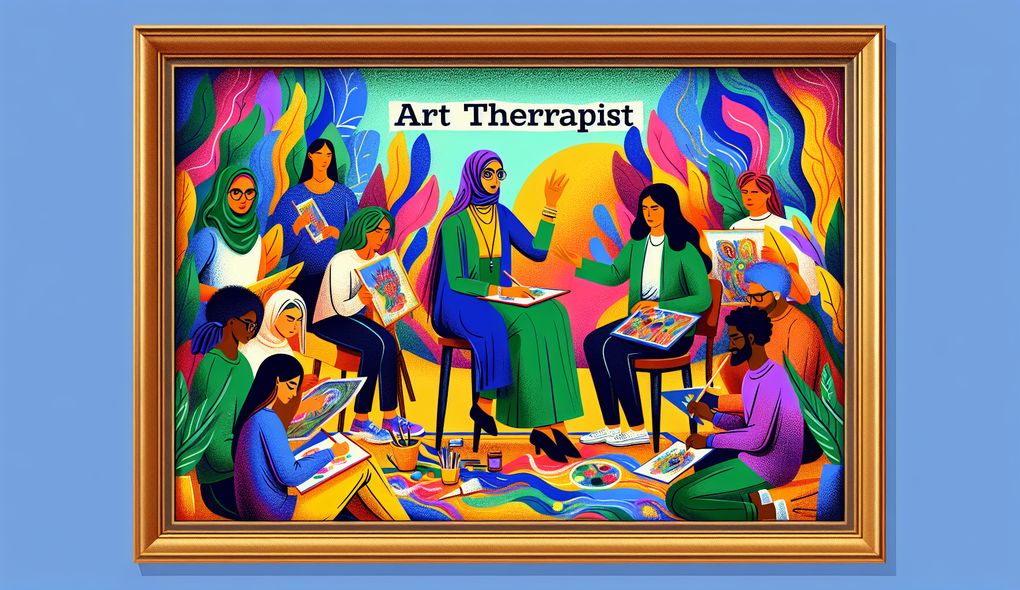Explain the ethical and legal issues specific to art therapy practice that you are familiar with.
SENIOR LEVEL

Sample answer to the question:
As an experienced Art Therapist, I am familiar with the ethical and legal issues specific to art therapy practice. One ethical issue is maintaining confidentiality and privacy, ensuring that client artwork and personal information are kept secure. Another ethical issue is informed consent, obtaining permission from clients to use their artwork for assessment and research. In terms of legality, I am aware of the need to adhere to state licensure requirements and professional codes of ethics. Additionally, copyright and intellectual property laws are important considerations when working with clients' art. Overall, I prioritize the well-being and rights of my clients while practicing art therapy.
Here is a more solid answer:
As an experienced Art Therapist, I am well-versed in various ethical and legal issues specific to art therapy practice. One significant ethical issue is ensuring confidentiality and privacy. I am meticulous in maintaining the confidentiality of client artwork and personal information, storing them securely and using them only for therapeutic purposes. Another crucial ethical consideration is obtaining informed consent from clients. I always explain the purpose, benefits, and potential risks of using their artwork for assessment and research, obtaining their permission before doing so. On the legal front, I adhere to state licensure requirements and strictly follow professional codes of ethics. I am also knowledgeable about copyright and intellectual property laws, respecting the ownership and rights of clients over their artistic creations. Overall, my practice of art therapy is guided by a strong commitment to preserving my clients' well-being, autonomy, and rights.
Why is this a more solid answer?
The solid answer provides specific examples and detailed explanations of the ethical and legal issues related to art therapy practice. It demonstrates a strong understanding of the importance of confidentiality, informed consent, state licensure requirements, professional codes of ethics, and copyright laws. However, it can still be improved by including additional examples or real-life scenarios that showcase how the candidate handles these issues in their practice.
An example of a exceptional answer:
Having extensive experience as an Art Therapist, I have encountered and navigated various ethical and legal issues specific to art therapy practice. Confidentiality and privacy are paramount concerns, and I take every precaution to safeguard client artwork and personal information. For instance, I ensure that client files are stored securely and that sensitive information remains confidential. In terms of informed consent, I go beyond the basics and engage in thorough discussions with clients about the purpose, benefits, and potential risks of utilizing their artwork for assessment and research. This ensures their complete understanding and enables them to make informed decisions about their participation. Regarding legal compliance, I diligently adhere to state licensure requirements and consistently follow professional codes of ethics. Additionally, I am well-versed in copyright and intellectual property laws and make it a priority to respect and protect clients' rights to their own artistic creations. To stay updated on the ever-evolving ethical and legal landscape, I actively engage in continuous professional development and seek out relevant training and resources. By consistently prioritizing the well-being, autonomy, and rights of my clients, I strive to create a safe and ethical art therapy practice that provides transformative experiences and fosters growth and healing.
Why is this an exceptional answer?
The exceptional answer not only provides specific examples and detailed explanations of the ethical and legal issues related to art therapy practice but also showcases the candidate's proactive approach to handling these issues. It demonstrates a deep understanding of confidentiality, informed consent, state licensure requirements, professional codes of ethics, and copyright laws. The candidate emphasizes their commitment to continuous professional development and staying updated on ethical and legal practices. The answer is comprehensive, well-structured, and showcases the candidate's expertise in navigating the complex ethical and legal landscape of art therapy practice.
How to prepare for this question:
- Review the ethical guidelines and codes of ethics specific to art therapy practice.
- Stay informed about current legal regulations and best practices in art therapy.
- Reflect on personal experiences and case examples that highlight ethical and legal challenges faced in art therapy practice.
- Consider seeking mentorship or guidance from experienced art therapists to deepen your understanding of ethical and legal issues.
- Participate in continuing education and professional development opportunities that focus on ethical and legal aspects of art therapy practice.
What are interviewers evaluating with this question?
- Ethical and legal issues specific to art therapy practice

